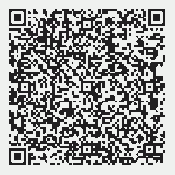I love social media. I have met many wonderful people that have become colleagues, friends, associates, and partners..jpg) No matter how often we speak online through our various networks, the power of face-to-face old school networking is still very relevant. I see some businesses trying to go the easy route by focusing too much on making the ‘net work that they forget to network. More important, they forget (or were never taught) how to effectively network.
No matter how often we speak online through our various networks, the power of face-to-face old school networking is still very relevant. I see some businesses trying to go the easy route by focusing too much on making the ‘net work that they forget to network. More important, they forget (or were never taught) how to effectively network.
We hear about networking all the time. People often mistake it for something it is not, though. It is so omnipresent in the lexicon of America that the meaning has become watered down. It is sort of like a brand name that has become a commodity. Some good examples are Kleenex, Jeep or Coke – even Sea-Doo suffers from this affliction. Well, add networking to the pile of words/brands over-used creating meanings as eroded as the smooth water beaten pebbles on the beach.
First, no matter how many events you attend people still buy from people and they buy from people they like. So, if you’re doing the speed dating style networking in an attempt to “work the room” then you’re probably failing. There is a little bit of nuance to cutting a conversation short because your offerings don’t align with someone else’s need and vice versa, but don’t set a time limit on every person you speak with. Plus, that person may be a worthwhile recommender to one of their influences about you. When meeting people and cutting conversations short, there is often very little that is accomplished. Of course, you get the occasional call from someone you only briefly met and slipped a card to while angling to speak with someone more influential or fill your quota. On the other hand, the quality of the interaction goes much further in solidifying a memorable experience that will result in a relationship forming. Relationships are what lead to the unexpected email or phone call with revenue implications.
Second, make sure you have a neatly wrapped elevator speech that isn’t overly aggressive. I know elevator pitch and not aggressive may sound water with no melon in the fruit salad insane, but I have found it works. Plus, the passion will shine through because you’re using terse and powerful language to get your point across quickly and clearly. It makes the communicator sound professional and focused to the receiver. I have written them out, in the past, and tried various versions of them to see the reactions I conjured. Without fail, there is usually one that stands out and inspires the question, “tell me more.”
Finally, make sure you offer something of value when networking. This makes more sense with the freemium model of the interwebs than it ever has before. Regardless, it is still relevant to mention. If you are unable to offer good suggestions or timely ideas, then your networking may fail. There is no magic bullet to tell you how this will work for you, because it is unique to every person’s situation. The truth of the matter is, the person that is put in the phone, contacts list and called is the one that was memorable because an intelligent or thought provoking comment was made during the interaction. This typically means sticking to what you know, and don’t speak on what you don’t know. Sounds simple, but watch the number of people that stumble over themselves, trying to sound intelligent about things they know very little about, at your next networking event.
Now, I’m going to end this so I can get out there and meet some folks. I feel it is one of the most powerful and personally edifying marketing tactics I employ – what about you?



Great points made here! I cringe when I see “Networking Guy” throwing his business cards around because I am a firm believer in Bob Burg's maxim, people do business with those they know, like and trust. I focus on making two or three good connections at an event. It allows me to dig a little deeper, make my follow through manageable and to give benefit to my new connection more immediately.
Like, know and trust it is true – you said it better than I did in the post by mentioning Burg. I like the rule of limiting the number of contacts you attempt to make at an event too. I hate when I come home with a pocket full of cards from an event or tradeshow and I think to myself, “what was I speaking with this person about”? Then you have to hold that awkward cold – warm call. *Bleh* On the other hand, I would hate to miss out on a great opportunity by limiting myself. What do you do to make sure you don't ignore good potential?
Hi Therran,
Great post. You are correct, social networking should complement face to face networking not replace it. Know – Like – Trust is all about building relationships. Networking shouldn’t be viewed as “events” where you go to sell your business. When people understand that then networking works for them.
Good post, Therran. It's so true, of all the people I met at all the Future Midwest events last week, it is the ones who I had longer, deeper conversations with that I feel truely connected to and came back and added to some of my social networks.